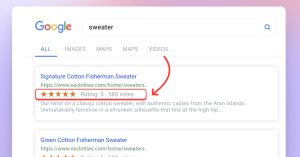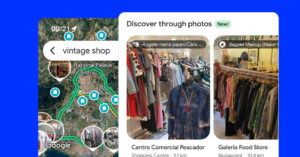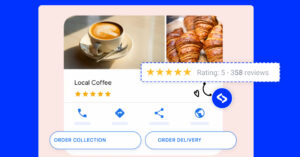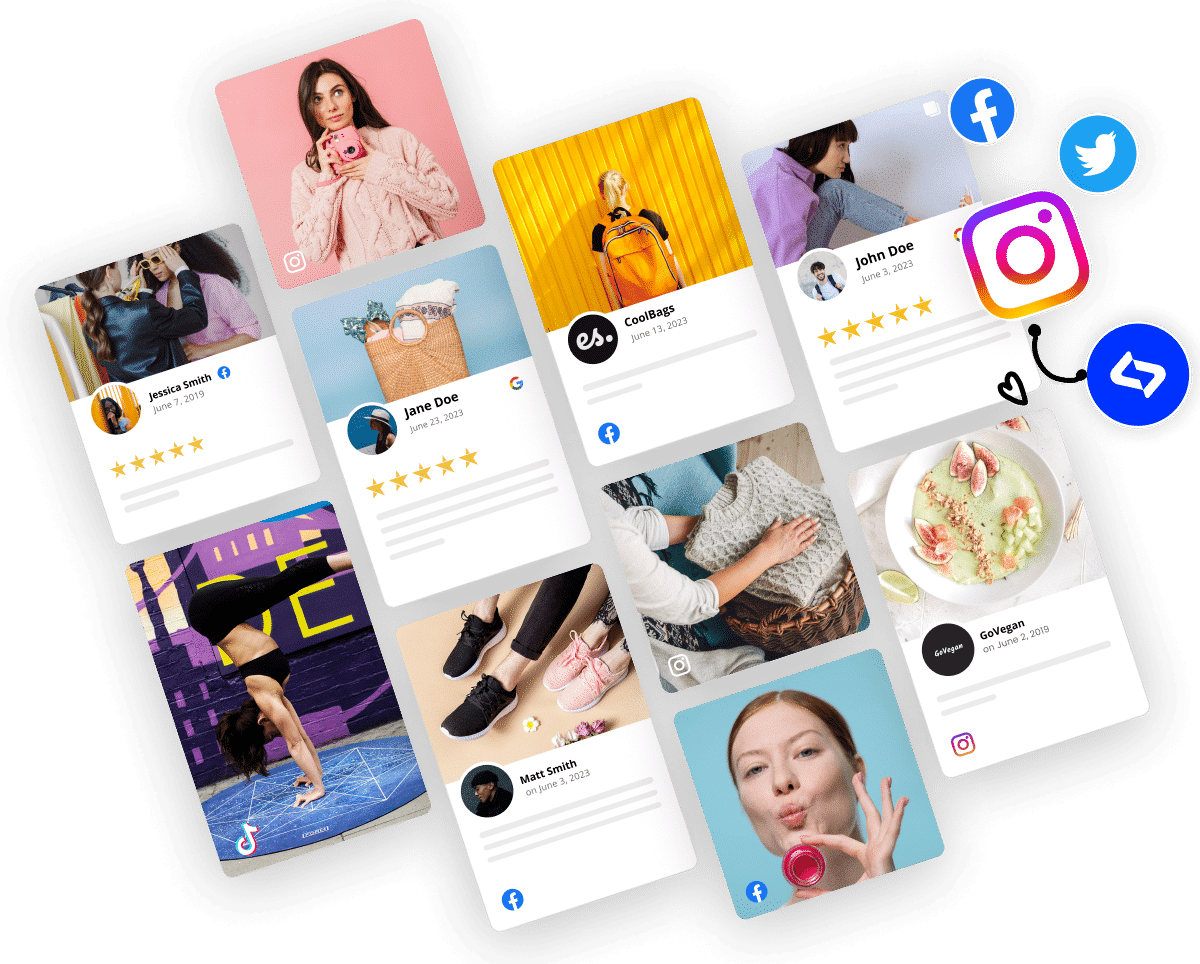You’ve probably heard of testimonial advertising if you work in the marketing industry.
We explain everything in this blog post. You will read how to leverage customer reviews as advertising testimonials and inspire with a few real-life examples of testimonial ads.
With testimonial advertising, businesses can capitalize on the perceived credibility of satisfied previous customers. It is an experiential marketing tactic that can influence consumers’ attitudes, thus generating more sales over time.
Let’s define testimonial advertising with real examples to help explain how some companies use customer testimonials in their ad campaigns.
What Is Testimonial Advertising?
Testimonial advertising or customer endorsement is a form of advertising that uses actual customers’ experiences as an ad. These customers are featured in advertisements, showing their opinions about a product using their own words. Hence, testimonial advertising provides an objective view of a particular product and builds trust among viewers.
The concept has been around for many years. A perfect example is a celebrity testimonial posing with the product in print media (magazines, posters, newspapers, etc.).
It is still common in the cosmetics or health industries to use prominent figures in video testimonials or a success story to drive brand trust.
Now we see actual customers (everyday people, not just thought leaders in an industry) lend credibility and their customer voice in advertising campaigns and marketing materials, such as email marketing campaigns and social media ads.
Why Do Testimonial Ads Work?
Testimonial ads have been utilizing the word-of-mouth marketing strategy for years. It is a form of user-generated content that is still effective despite being around for ages.
While it might be true that not every testimonial ad example you see is successful, there can only be one explanation for why these seldom fail.
When it comes to buying a product or service, potential customers trust other people way more than they trust employees. The truth is, praise coming from you as a business will never be as powerful as if it’s coming from your customers who you’ve already helped achieve their goals.
Furthermore, testimonial advertising is a great way to compliment your organic customer acquisition process. It allows you to naturally reach more target audiences and increase inbound traffic. It is social proof, develops trust in your clients, boosts brand credibility, and finally helps build better conversion rates.
In the following text, we reveal five testimonial advertising examples used by reputable companies and proven to help increase sales. Additionally, we give you a few tips for each testimonial advertising example to make sure you are on the right track.
What’s the difference between testimonials and endorsements?
Testimonials and endorsements are both ways to build trust and credibility for a product, service, or individual. However, they have some key differences:
Source
Testimonials: These are statements made by customers or clients who have used a product or service. They share their personal experiences and opinions based on their usage.
Endorsements: These are usually given by celebrities, influencers, or experts in a relevant field. They may or may not have used the product or service, but their support is meant to influence potential customers.
Content
Testimonials: Generally contain detailed experiences, including the pros and cons of using a product or service. They might be more authentic and personal.
Endorsements: Often more general in nature, focusing on the positive aspects of a product or service. They might be scripted or carefully crafted to convey a specific message.
Purpose
Testimonials: To provide real user experiences to help potential customers make informed decisions.
Endorsements: To leverage the popularity or expertise of the endorser to influence potential customers and create a positive image for the product or service.
Format
Testimonials: Can be found in various formats such as written reviews, video testimonials, or interviews. They are usually featured on the company’s website or review platforms.
Endorsements: Often found in advertising campaigns, including TV commercials, print ads, and social media promotions.
Credibility
Testimonials: Generally perceived as more credible as they come from actual users who have no vested interest in promoting the product.
Endorsements: The credibility might be questioned, especially if the endorser is paid to promote the product or service. However, a well-respected endorser can still have a significant positive impact on the brand’s image.
Types of Testimonial Advertising
1. Customer Reviews Text Testimonials
Customer reviews and text testimonials are an excellent way to build trust with customers, and they should be used more often. They come cheap and are easy to create. Can work alongside other forms of advertising and fit in seamlessly with any brand. In addition, they don’t require a lot of backend work and can be simply acquired via email. Having this approach will help you improve the CTR and conversions of your ads.
Text testimonials are often displayed directly on the company website. For example, on Semrush’s website, you can find text testimonials accompanied by customers’ photos. Plus there is additional relevant information to make them even more trustworthy and authentic.
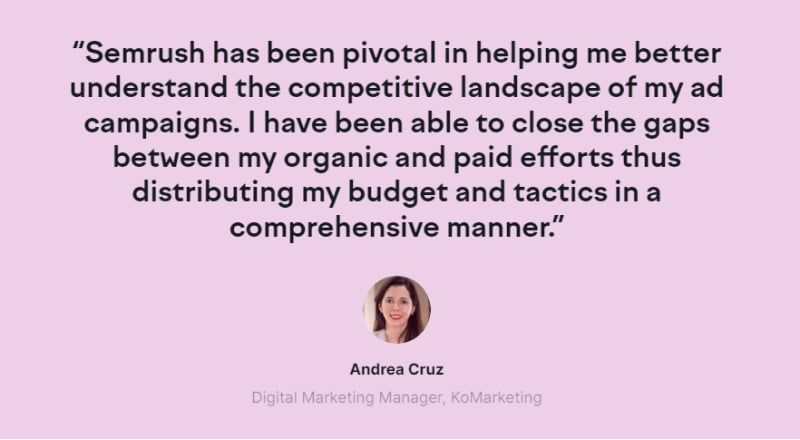
The fact that this type of testimonial advertising is used across multiple channels and in all kinds of forms gives you an excellent opportunity to be creative and unique. A way to outstand in the overflowing world of testimonial advertising.
To get started and get more reviews, try asking your active customers on your social media. However, the last thing you want to do is jeopardize your relationship, so be friendly and if you get a review, make sure you use it as it is, without changing its text or context.
2. Video Testimonials
Video testimonials can significantly lift your marketing and increase your sales. In today’s world of massive online sales, having a testimonial is a bare minimum for businesses. But, those businesses who want to get their marketing strategy a step further need to implement video testimonials.
The first thing to remember is that the testimonial video is not about you or your product. It’s about your customers, your clients, and the problems they are dealing with every single day. Therefore, if you want to create powerful customer videos, make sure to implement the following tips.
Create curiosity
A good testimonial video creates a curiosity in the first few seconds. Those are the crucial seconds that will entice the audience to watch the video till the end, or they do not bother and turn it off immediately.
A curiosity gap is between what you know and what you want to know.
The secret to getting people to watch the video testimonials is constantly creating curiosity gaps. Specifically, as soon as you give people an answer, you introduce another question to keep people watching.
Present tense
Shot the video as it happens. That means you have to plan and start shooting your video from the moment the client or customers come on board until you achieve the desired goal.
That’s because a mental shift goes in a prospect’s mind when watching a testimonial video about a past problem.
Thus, to create a powerful testimonial advertising video, use present tense by shooting everything as it happens or with brand new customers who are actively using your product.
Don’t just tell but show the results.
The ability to show the results is the most significant advantage of video testimonials.
Even though many testimonial videos are all about speaking about the impact that the tool, service, or product has in their life, showing that the testimonial video will be more effective in convincing prospects that they need your product.
Leverage the power of background music
Music has the power to evoke the emotions you want your audience to feel.
By choosing the right background music, people will ‘feel’ the problem and the actual solution, with its satisfaction.
Therefore, use music wisely and treat it like a soundtrack.
Delay the reveal
Lastly, delay the reveal and put the product placement right before the big reveal. Revealing the final results of the whole process needs to be at the end of your video testimonials. That way you can steal the attention of most of the prospects, and they will watch the whole video to find out what is the final result.
And just before you give them that, promote your product. People who watch the video are already identifying with the problems you discuss, so by giving the solution before you show the results everybody desires, you are increasing your chances of selling your product, service, or tool.
Moreover, don’t use a CTA when you’re promoting your product.
A well thought testimonial advertising video has the power to truly inspire people to do the next search on their own (implied call to action), and that’s what you should be aiming to. Grammarly is one of the many brands with great and inspiring video testimonials. These short video testimonial propaganda examples hold a simple message that helps people relate to different scenarios where the tool is useful.
3. Peer Testimonials
It’s proven that we naturally gravitate towards people who resemble ourselves. Consequently, peer testimonials are another effective way to do testimonial advertising. You might not be aware of it, but you are more likely to buy a product if you can identify with the person in the advertising.
One of the many successful companies using peer testimonial advertising is Ahrefs. As an SEO tool, Ahrefs has a great example of a homepage with authentic testimonials from founders, content marketers, agencies, bloggers, etc. All are telling how Ahrefs helps them grow their business.
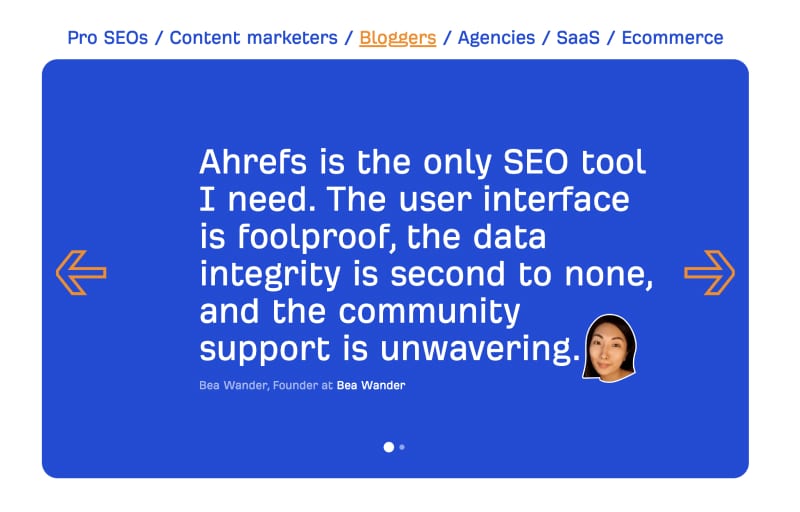
If we’ve convinced you to start using peer testimonials to get more clients, here are some tips to get started.
Before you start, make sure you know who your customer persona is. This is crucial because that’s the only way to know who to ask for testimonials.
Next, you can ask for testimonials from people within your target market. And finally, don’t forget to include personal details about them so readers of the testimonial can identify with them.
4. Influencer Testimonials
In 2020, the influencer marketing market was USD 6.0 billion, and it’s expected to grow to USD 24.1 billion by 2025.
Influencers, especially micro-influencers, have transformed the marketing industry, and in today’s world of massive social media consummation, they will have even more impact on the customer’s decisions.
Consequently, influencer testimonials will be one of the most effective ways to advertise in the following years.
Getting a shoutout from an influencer, well-known brand, or celebrity all counts as a commercial with a testimonial, and you can use it in your testimonial advertising strategy. Influencers have a close connection with their audience and are highly trusted authorities in the specific industry or field; thus, choosing the right influencer to partner up with will notably increase your sales.
First, you need to find influencers suitable for your brand to get started.
Find micro-influencers
Even though you might first think the most-known influencers will bring you the best results, working with smaller influencers can also boost your sales because some of them have a stronger bond with their audience.
One great example of influencer testimonial endorsement examples is the testimonial advertising strategy of Foundr.
Foundr as global media and education company for entrepreneurs partnered up with a few successful entrepreneurs to recommend them as a solution to other business owners that are aiming to become as successful as them.
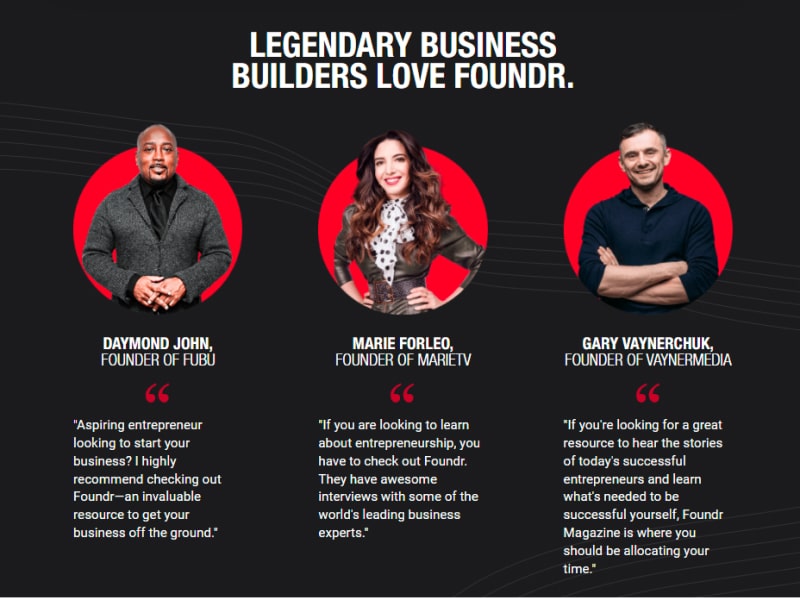
However, whether the influencer is suitable for your ads depends on the industry they are focused on, their audience, and whether they are truly fascinated by your product.
If they are familiar with your product, they can create a more impactful testimonial, and the audience will feel that.
Partner with more than one influencer
Another tactic you need to implement when doing testimonial advertising with influencers is to partner up with more than one.
Featuring more influencer testimonials on your website means attracting more customers because not everybody trusts the same influencer.
Like peer testimonials, people love and trust influencers they can identify with.
Read more: Social media testimonial templates
5. Success Story Testimonials
This type of testimonial advertising is one of the most effective for obvious reasons. If testimonial quotes are proven to increase sales, what do you think happens with actual customer transformation or achievement? That’s right. Your chances to increase sales are even more significant.
Fitness companies or coaches mostly use this type of testimonial advertising since it’s a perfect opportunity to promote their services with before and after photos. Over the past year, it is also commonly used by software companies, SaaS, and similar.
However, if you decide to include success stories on your website or social media posts, use the peer testimonial concept and incorporate different testimonial types of people from your target audience.
This means if you are promoting your fitness business, you need to include pictures of men and women, weight loss and muscle gain, different ages, etc.
If you promote your software or tool, show your prospects the current customers’ benefits and show results with numbers. Saying that you help a company get more sales is not specific. But saying you help a company increase their sales by 30% is a true success story that will entice more customers to buy your tool or service.
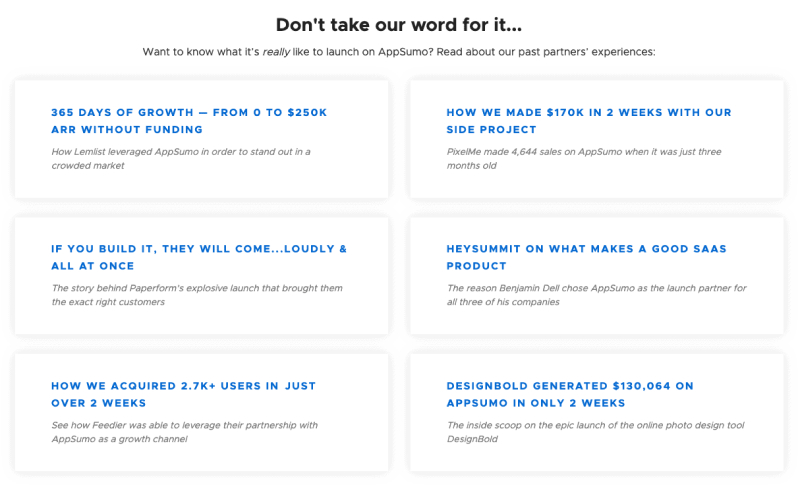
On the whole, to implement success stories, besides showing results with numbers, a few other tips will make your testimonial advertising more convinceable. Use any chance to display images, visuals, screenshots, and others.
This can be a before and after photo of the web design, before and after SEO score or website performance, and similar. Still, make sure you ask your client for permission to use quantifiable results.
Examples Of Testimonial Ads on Social Media
Finally, let’s see how you can create social media ads with your customers’ testimonials.
Here at EmbedSocial, we see a lot of requests for users to re-purpose their customer testimonials and create Facebook or Instagram ads. Here is an example of an ad we recently published:

The platform provides a testimonials ads creator for Facebook that generates ad images with the reviews you aggregate with EmbedSocial. But of course, if you need a one-time ad, you can simply use an image creator, like Canva or Figma, to apply the testimonial quotes in an image.
When it comes to Instagram, the ads you can create are in a square format, like this:

How To Get More Customer Testimonials?
All five testimonial examples mentioned above are the ones that will be the most attractive this year. Different formats are more suitable for different advertising channels; therefore, you first need to decide where to implement a testimonial commercials strategy.
Primarily, these tactics are used on the company’s website, social media, and PPC campaigns, and because each of them is effective in its way, combining all three advertising channels will bring the best results.
And since we already provide testimonial advertising examples, the only thing left is to show you how to get more testimonials for your business.
Find the perfect customers for your testimonials.
This step is probably the hardest, but not impossible. Most businesses get positive feedback every day, and these moments are perfect opportunities to ask them. This can happen while chatting online with them, providing customer services, or in-house at your physical location.
In all these instances, have a process to capture a testimonial when the customer is in contact with you and naturally ask them to give you a quote testimonial. Don’t go for a more extended version, success story, or a video testimonial – this can come after you get the customers success stories.
Give clients a few options on how they want to provide a testimonial.
Not every customer or client has much time to give you testimonials. For example, if you are looking for a video client testimonial, and your client doesn’t have the time to record themselves, you will lose the opportunity to receive a good testimonial. That’s why providing a few options for your client on how they want to give that testimonial is essential.
Related to this, make sure the tool you use to capture testimonials is not complicated. Here are some ideas on how you can ask for customer quotes:
- when you ask for Google reviews, make sure the customers already have a Google account
- while chatting online, make sure they can write it immediately in the chat or provide them a link
- in your physical location, provide them a password-free tablet or a simple feedback form where they can easily submit a testimonial.
Ask questions
Make sure you take the time to ask your customers about their experience with your business and take time to thank them for their kind words sincerely. All of this will go a long way towards building a base of quality testimonials that can help increase the overall profile of your business.
Your approach needs to be in the format of asking for feedback and genuinely listening to what the customer needs to say. It is usually positive feedback, but if you face negative reviews, try to capture it and make sure first to handle all the customer’s issues and postpone the goal of capturing their testimonial.
Ask for approval to share the testimonial.
Don’t expose your clients without their approval. Tell them the purpose and where you plan to display the testimonial. Moreover, if you are using their name, photo and title, don’t forget to note that.
However, if you don’t have the time to reach out to your clients and ask for testimonials, don’t forget that many businesses choose to get testimonials by using third-party sites.
This leaves you to focus on making sales rather than spending your valuable time on getting testimonials.
In the end, no matter how you choose to get customer reviews, make sure you create attractive designs and share your testimonials everywhere.
Use reputation management software
If you receive tons of online reviews and mentions on social
media then a good reputation management software can help you aggregate all that content at scale.
This means that most of the tools for reviews management have integrations with social media platforms to aggregate reviews and user-generated content automatically and in one place.
By doing this, you will have all your customers’ reviews in one dashboard, respond to them on time, and use the content to create testimonial ads.
Check our list of the best reputation management tools and learn how to choose one.
Conclusion
Your real customers’ experiences are a powerful tool that you can use in your email campaigns and social media campaigns.
Follow the latest reputation management trends and make your ads human.
Hope these few examples will inspire you and help you capture effective testimonials and customer stories for your digital advertising.
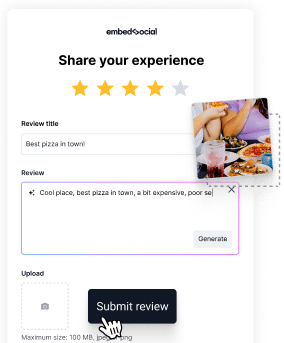
Collect reviews, feedback, and reply to testimonials at scale!
Use complete reviews management software to generate and reply to Google reviews with AI.



